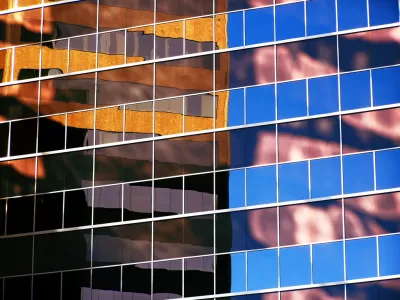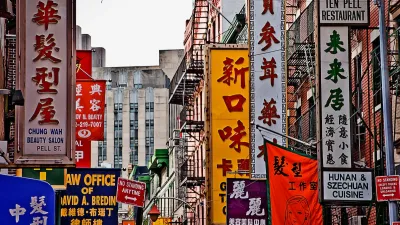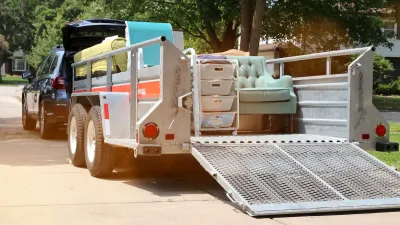As part of Bloomberg BusinessWeek's "Fix This" city planning series, the World Bank's Daniel Hoornweg considers how cities can often be a reflection of the cultural and institutional personalities of their citizens.

Cities are the most ambitious achievement of humanity. They evolve to represent what people want and can afford according to Daniel Hoornweg of the World Bank. While certain practical realities help to shape the form of a city, such as the availability of natural resources, he also describes cities as, "a function of the bones of the animal, which tend to be the transportation system."
Mick Cornett, Mayor of Oklahoma City, also discusses how to finance making a better city through taxes and how his city was able to pass sales tax increases with a relatively conservative electorate. Oklahoma City has one of the strongest economies in the country, despite the recession, and in that environment, he says, "you got to make things happen while you can."
Thanks to Anatalio Ubalde
FULL STORY: Are Cities a Reflection of Their Citizens?

Planetizen Federal Action Tracker
A weekly monitor of how Trump’s orders and actions are impacting planners and planning in America.

Chicago’s Ghost Rails
Just beneath the surface of the modern city lie the remnants of its expansive early 20th-century streetcar system.

San Antonio and Austin are Fusing Into one Massive Megaregion
The region spanning the two central Texas cities is growing fast, posing challenges for local infrastructure and water supplies.

Since Zion's Shuttles Went Electric “The Smog is Gone”
Visitors to Zion National Park can enjoy the canyon via the nation’s first fully electric park shuttle system.

Trump Distributing DOT Safety Funds at 1/10 Rate of Biden
Funds for Safe Streets and other transportation safety and equity programs are being held up by administrative reviews and conflicts with the Trump administration’s priorities.

German Cities Subsidize Taxis for Women Amid Wave of Violence
Free or low-cost taxi rides can help women navigate cities more safely, but critics say the programs don't address the root causes of violence against women.
Urban Design for Planners 1: Software Tools
This six-course series explores essential urban design concepts using open source software and equips planners with the tools they need to participate fully in the urban design process.
Planning for Universal Design
Learn the tools for implementing Universal Design in planning regulations.
planning NEXT
Appalachian Highlands Housing Partners
Mpact (founded as Rail~Volution)
City of Camden Redevelopment Agency
City of Astoria
City of Portland
City of Laramie





























